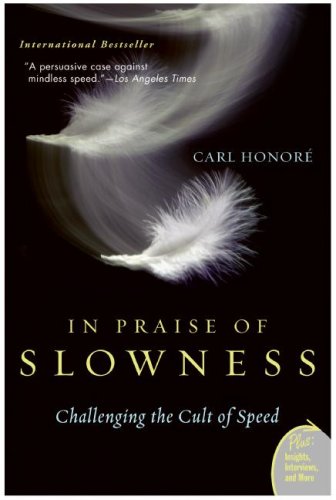Wasted Time
At some point I lost the ability to be at rest. Dreading wasted time, I felt the impulse to fill every minute of my day with something productive. And when I took a break to watch a movie or to read for pleasure, I often felt guilty, knowing that I would reach the end of the day with my to-do list still unfinished. I thought that the more I achieved, the happier I would be, so I optimized my life for efficiency.
But efficiency meant that certain things fell by the wayside, "non-critical" activities like going to the gym or hanging out with people. After a few years, the effects of this policy became clear: I felt isolated and unable to connect with other people, and I started having repetitive-strain problems with my hands. The upside? I graduated top of my class, and I got into an excellent grad school. It was a Pyrrhic victory, in retrospect, given that my original fascination with computer science was quashed by the drudgery of never-ending problem sets.
I am still very much in search of balance. I recently picked up Carl Honoré's book In Praise of Slowness, hoping that it might provide some sort of guide. The book acknowledges our obsession with doing everything faster, and its corollaries: not eating well, not getting enough sleep, feeling burnt out at work and impatient at home. The book then enumerates various things that people and communities do to slow down, to maximize enjoyment rather than efficiency. These include farmer's markets, walkable neighborhoods, meditation, yoga, part-time work, knitting, gardening, and so on. The common theme here is a desire to unplug from the 24/7 machinery of globalized capitalism, and carve out some time for calm and relaxation.
But the book left me unsatisfied. It merely scratched the surface of the underlying questions: Why is unstructured time uncomfortable, like a vacuum to be filled? Why are we drawn to speed, efficiency, and workaholism? Why do we always feel like we're running out of time? I think the answer has to do with our tendency to measure self-worth in terms of achievement, and the habit of comparing ourselves to other people. David Burns has some interesting things to say about these in his book Feeling Good.
My own drive to work hard and be efficient came from a poorly articulated fear that if I slowed down, if I didn't work as hard as I could, then I would somehow fail, and be unable to live the kind of life that I wanted. Exposed to the light of reason, that belief is clearly irrational. I'm finally starting to learn how to take control of my life, and not be a slave to my to-do list anymore.
